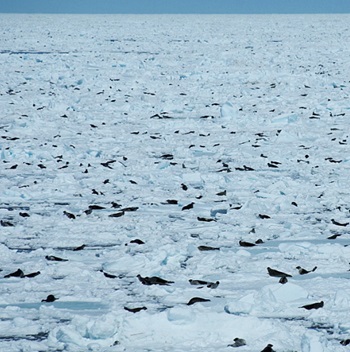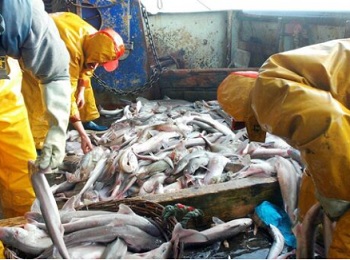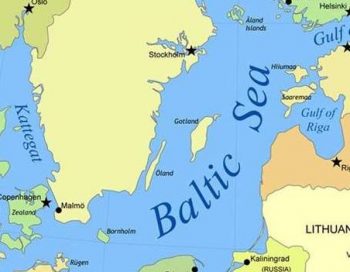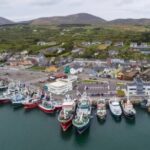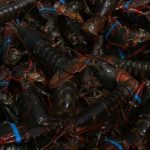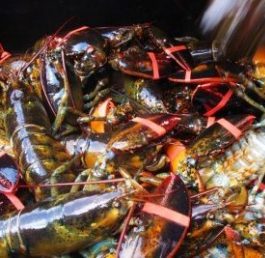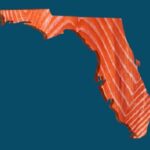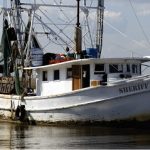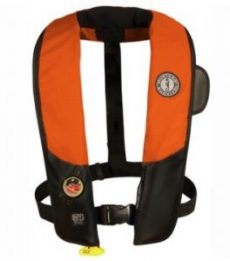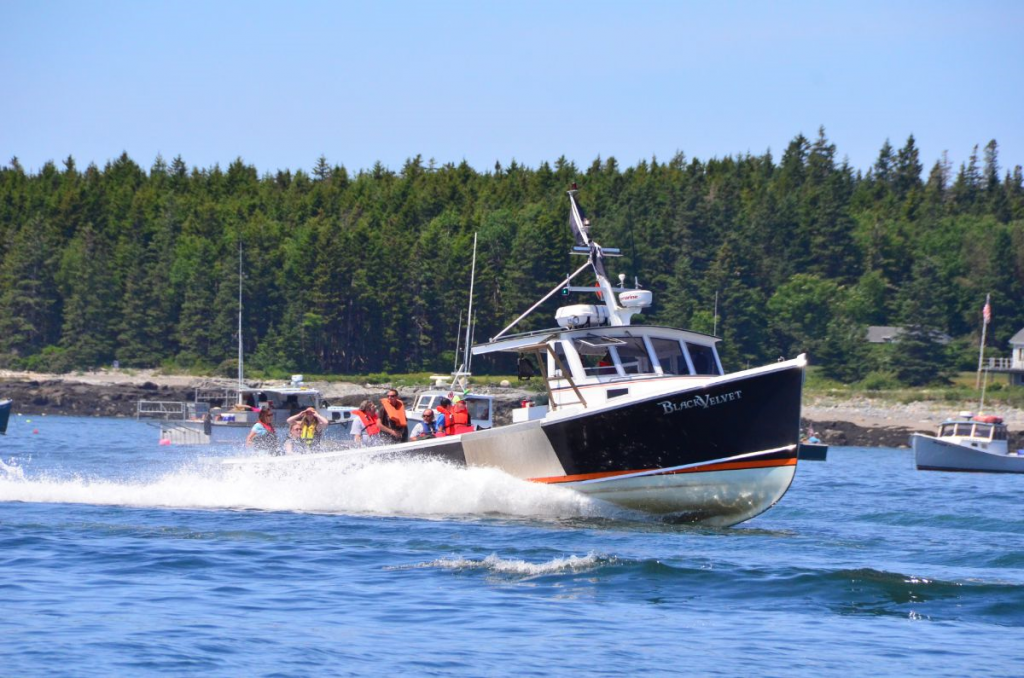Tag Archives: European Commission
Fish farming fouls fjords, faces fines
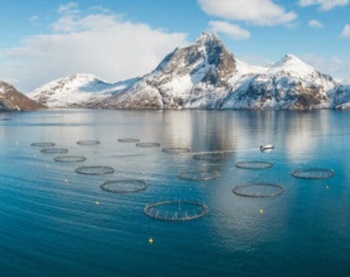 Norway’s huge fish-farming industry has become almost as controversial as the country’s oil and gas. Salmon producers in particular have long been accused of endangering wild salmon, but now Norwegian media have also reported how some fish hatcheries have polluted fjords while fish farms have neglected fish welfare. This week six of Norway’s major salmon producers also found themselves facing charges of collusion lodged by the European Commission. Norway is home to the world’s largest salmon producers and the EU is their biggest market. On Thursday, EU competition authorities sent out a “Statement of Objections” to six Norwegian salmon producers including Lerøy, Mowi, SalMar, Cermaq, Grieg Seafood and Bremnes. All are suspected of having “breached EU antitrust rules by colluding to distort competition in the market for spot sales of Norwegian farmed Atlantic salmon in the EU.” photos, more, >>click to read<< 12:26
Norway’s huge fish-farming industry has become almost as controversial as the country’s oil and gas. Salmon producers in particular have long been accused of endangering wild salmon, but now Norwegian media have also reported how some fish hatcheries have polluted fjords while fish farms have neglected fish welfare. This week six of Norway’s major salmon producers also found themselves facing charges of collusion lodged by the European Commission. Norway is home to the world’s largest salmon producers and the EU is their biggest market. On Thursday, EU competition authorities sent out a “Statement of Objections” to six Norwegian salmon producers including Lerøy, Mowi, SalMar, Cermaq, Grieg Seafood and Bremnes. All are suspected of having “breached EU antitrust rules by colluding to distort competition in the market for spot sales of Norwegian farmed Atlantic salmon in the EU.” photos, more, >>click to read<< 12:26
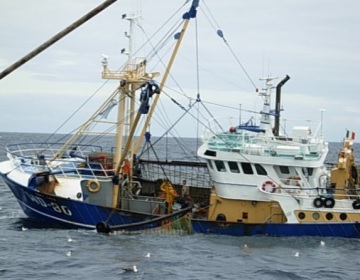
CJ Gaffney calls on McConalogue to Support Inclusion of Mary Kate in Review
CJ and his family have been fighting for justice in relation to the loss of the beam trawler and the debts incurred during their time of ownership. Although the European Commission has offered the Irish government a solution to compensating the Gaffney family, Minister for Charlie McConalogue, as with his predecessors, Simon Coveney and Michael Creed, has steadfastly refused to consider the issue, and have routed the blame to the Department of Transport, which oversees the Marine Survey Office, who was responsible for signing off on the seaworthiness of the MARY Kate WD-30. After a long campaign, which has received backing from his local County Council, TD’s and Irish MEPs, CJ has once again asked both Ministers McConalogue and Ryan to back an investigation into how the MARY KATE was ever passed as safe for fishing operations. >>click to read<< 16:16
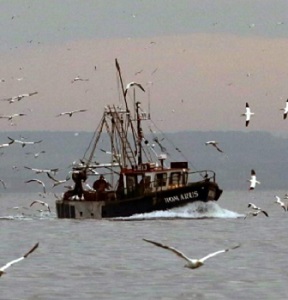
SNP must dump the Greens and ditch HPMAs
In England, marine conservationists have persuaded the Westminster Government to designate around 0.53% of coastal waters as HPMAs in a series of pilot projects. But in Scotland, the area is more than 20 times greater, threatening livelihoods and entire fishing communities. Kate Forbes, the former SNP contender for the job of First Minister, says that “if the proposals go ahead as planned, the rarest species in our coastal areas and islands will soon be people.” Scotland’s fishing communities are not alone in their opposition to new marine conservation measures. In Europe, fishers from many countries are staging a series of protests against European Commission proposals aimed at “protecting and restoring marine ecosystems for sustainable and resilient fisheries”. >click to read< 08:40
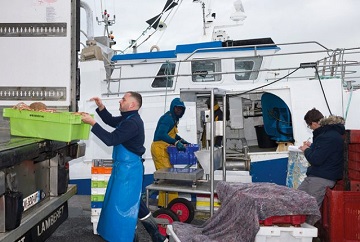
The European Union’s Plan to Ban Bottom Fishing is Causing Widespread Outrage
The plan, which seeks to ban bottom trawling in protected areas, has caused widespread demonstrations, disruption of work in ports, and the launch of a protest movement by fishermen in France called “Blocked Ports”. Although the Commission’s proposals do not represent new legislation, and will not be implemented soon in a way that satisfies some environmental protection non-governmental organizations, they have been met with strong opposition from a number of member states. There was outrage in Germany, Spain, Portugal, Italy, Ireland and Denmark, who feared the plan would endanger the entire fishing industry. The “Marine Action Plan” for sustainable fishing was announced on February 12, and it includes initiatives to phase out deep-sea trawling in protected areas. >click to read< 08:51
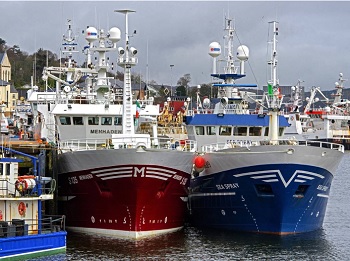
Brussels approves plan to fund scrappage of trawlers
The European Commission’s plan to encourage some Irish trawler owners to scrap their fishing vessels has been described as “a necessary evil” by Irish fishing organisations. The commission has approved a €80 million Irish scheme that would help owners badly affected by the withdrawal of the United Kingdom from the European Union to quit the industry. In order to qualify for the grant, which will be calculated on the gross tonnage of the fishing vessel, owners will not only have to stop fishing, but also to surrender their licence and scrap their boats. Some of the grants will have to shared with trawler crews, and crews will also be able to claim some tax reliefs. >click to read< 07:29
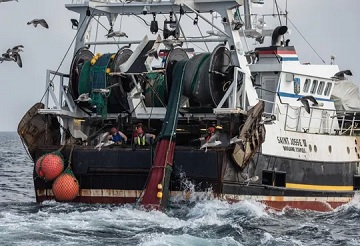
European parliament votes to ban ‘fly shooting’ fishing in part of Channel
While the European parliament does not have the power to ban the fishing method, MEPs said the vote on Tuesday sent an important message to decision-makers about the impact of fly-shooting on coastal fishing communities. The vote on an amendment to the common fisheries policy, involving access to territorial waters, will now be considered by the European Commission, the parliament and EU member states. Last year the UK was accused of allowing vessels using the fishing method “unfettered access” to the Channel without proper assessment of the impact on fish, the seabed or the livelihoods of coastal communities. >click to read< 15:12

Killybegs Fishermen’s Organization calls for Immediate Action on Russian Trawlers
A fleet of Russian midwater freezer trawlers are currently operating in a zone shared between the UK and the Faroe islands – having been issued licences by the Faroes. CFO boss Sean O’Donoghue has slammed the move. He said “What is most galling about this is that the Faroese are not just facilitating the access of the Russian boats, but they are also using their excessive blue whiting quota as a trade-off to ‘print currency’ or purchase cod quota from Russia. “It appears that the Faroese are swapping the fish in an area they share with the UK for cod quota in Russian waters,” said Mr O’Donoghue. >click to read< 10:17
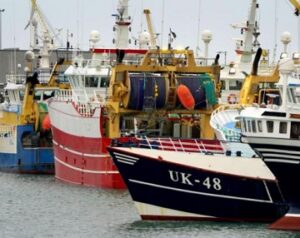
Government ‘disappointed’ by French fishermen’s threats to block exports to UK
The Government has said it is “disappointed” by threats of protest action by French fishermen amid the escalating dispute over post-Brexit fishing rights,,, Talks are ongoing between Britain, France and the European Commission to settle the main source of contention, which is the number of licences to fish in waters around the British coastline for smaller French vessels which can prove they have historically operated there. But French fishermen are “exasperated” by the “endless months of waiting” and are ready to “exert more pressure” on the UK, according to the fishing committee for the northern Hauts-de-France region. >click to read< 19:15
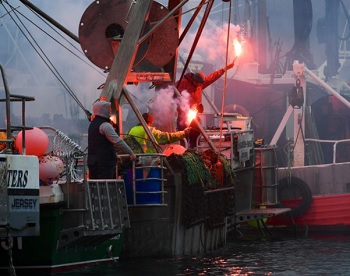
Jersey’s historic fishing fleet is missing out on thousands of pounds each week and eventually will collapse
Michael Michieli, owner of L’Ecume II, said that there were now only a small number of Jersey vessels going to sea as the local market was too small to support them. His comments came after harbours in La Manche, which includes the crucial Granville and Carteret ports, were formally closed to Island fishermen. The government says it is raising the issue with the European Commission. The closure happened just a day after a high-profile blockade of the Harbour involving around 70 boats from across Brittany and Normandy, as tensions grow over the issuing of licences allowing European boats access to Jersey waters as part of a post-Brexit trade deal. >click to read< 09:42
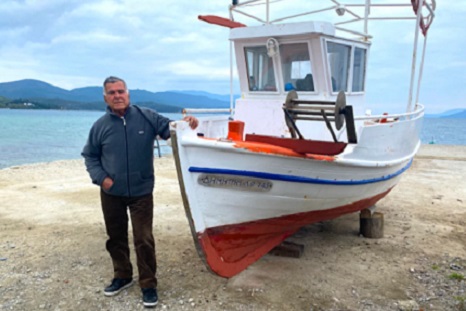
“Every crack was a stab in my heart,” – The Death of the Kaiki, Greece’s Traditional Fishing Boat
He sits sad-eyed on a bench in front of the Neos Pyrgos pier in North Evia, watching some of the few remaining kaikia go to and fro. Just a few years ago, his own kaiki was tied there next to them. Tzevelekos’ beloved boat was one of about 13,000 kaikia which have been deliberately destroyed since 1994, after a European Union directive called for the demolition of the small wooden fishing boats,, The directive aims at putting a stop to 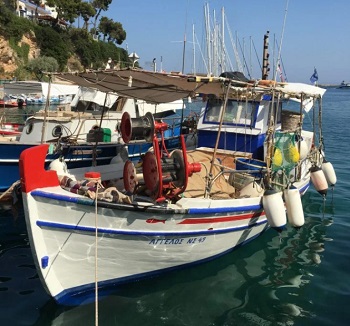 overfishing,,, “Every crack was a stab in my heart,” said Dimitris Livanos of Agiopyrgos, also in North Evia, describing the boat demolition that he was forced to witness. The Traditional Boat Association of Greece is a private organization which is making concerted efforts to save traditional boats from extinction. “There are about 15,000 fishing boats left, based on the number of current licenses. We don’t know how many of these are traditional,” says Nikos Kavallieros, president of the Association. >click to read< 11:53
overfishing,,, “Every crack was a stab in my heart,” said Dimitris Livanos of Agiopyrgos, also in North Evia, describing the boat demolition that he was forced to witness. The Traditional Boat Association of Greece is a private organization which is making concerted efforts to save traditional boats from extinction. “There are about 15,000 fishing boats left, based on the number of current licenses. We don’t know how many of these are traditional,” says Nikos Kavallieros, president of the Association. >click to read< 11:53
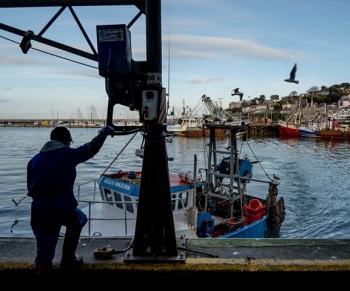
Deadline for Brexit Trade Talks Is Extended. Again.
Britain’s grinding negotiations with the European Union for a post-Brexit trade agreement won a reprieve on Sunday, as Prime Minister Boris Johnson and the president of the European Commission, Ursula von der Leyen, agreed to extend the talks despite divisions between the two sides that had looked impossible to bridge. In a joint statement issued after a midday phone call, Mr. Johnson and Ms. von der Leyen said, “We think it is responsible at this point to go the extra mile.” Mr. Johnson and Ms. von der Leyen did not set a new deadline for the negotiations, though as a practical matter, the two sides have only until Dec. 31,,, >click to read< 09:02
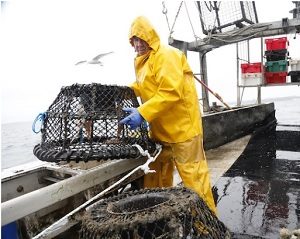
Will Brexit really bring victory for small scale fishermen or big business?
During the pre-referendum canvassing, Britain’s fishermen were held up by Leave advocates as an example of a ‘homegrown’ industry decimated by what they saw as ‘draconian’ EU regulations. Compliance with the EU’s Common Fisheries Policy, (that dictates that member states can’t control their own waters, nor set their own fishing quotas), was, they believed, the reason why. >click to read< 10:13
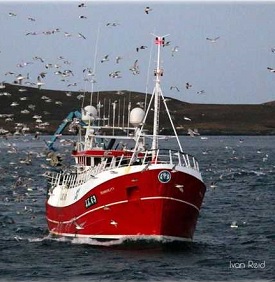
Brexit: Fishermen on high alert as EU trade talks loom
The UK is leaving the EU on Friday night after which both sides will get ready to talk about its future relationship with the aim to conclude these negotiations by the end of the year. Documents from the European Commission show that the EU’s negotiation position clearly aims for continuing with the status quo of reciprocal access to fishing waters and resources. Meanwhile the Irish Taoiseach Leo Varadkar is quoted as saying that access to UK waters must continue for EU fishing boats if the UK wants a trade deal on banking. >click to read< 11:19
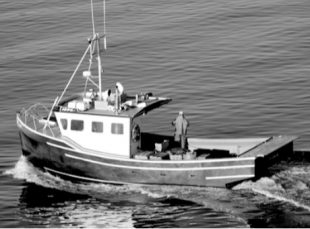
With the right team, we CAN get a good fisheries deal
John Ashworth writes an important take on how the renegotiated Withdrawal Agreement and Political Declaration cover fisheries. John is a hero of the Eurosceptic cause, and a critical figure in the campaign to win back British waters. Indeed, I well remember my first meeting in Parliament working for Sir Richard Body, because it was when Save Britain’s Fish campaigners came to discuss whether or not he should take back the whip. So it is with considerable reluctance that I write this. On this occasion, I think he may be wrong. >click to read< 13:56
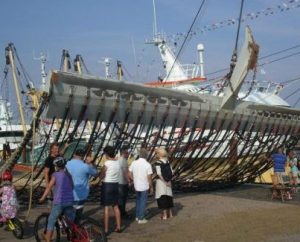
Brussels recommends legal action against Netherlands over pulse fishing permits
Civil servants in Brussels are recommending that legal action be taken against the Netherlands for breaking the rules on pulse fishing, campaign group Bloom said on Monday, quoting a letter from the European Commission. French marine lobby group Bloom made a complaint against the Dutch fishing industry last year. It claims 70 of the 84 Dutch pulse fishing permits were obtained illegally under the pretext of carrying out scientific research. >click to read<19:21
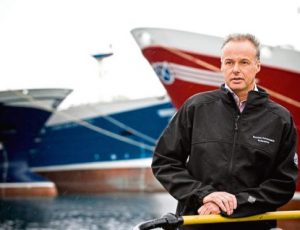
Scottish fishermen face cuts to mackerel quota
The International Council for the Exploration of the Sea (Ices), an influential group of scientists whose advice helps to shape fisheries policy in the EU and elsewhere, has called for north-east Atlantic mackeral catches to be slashed by nearly 70%. Mackeral was worth £162 million, or 29% of the total catch by value for the Scottish fleet last year. Scottish Pelagic Fishermen’s Association chief executive Ian Gatt said yesterday the proposed cut was a “huge concern” and he would be meeting European Commission officials today to discuss it. >click to read<08:04

Dutch trawlers may face pulse fishing ban as EU parliament says no
The European parliament on Tuesday voted in favour of a ban on pulse fishing, a decision which it will use in negotiations with the European Commission and which will have a major impact on the Dutch fishing industry, if implemented. Opponents of the system say it is a cruel and unnecessary method of fishing. It involves sending a current of electricity through sections of the sea bed, partially stunning sole and plaice and forcing some into the net. >click here to read< 16:49
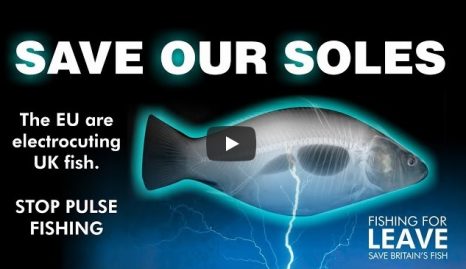
EU Trawlers Step Up ‘Pulse’ Fishing Efforts, Devastating British Fisheries Ahead of Brexit
European Union trawlers have been stepping up illegal ‘pulse fishing’ in British waters under a special EU derogation, inflicting “total devastation” on the North Sea. The controversial method of sees fishing vessels — mostly Dutch trawlers — drag electrodes across the seabed to zap sole and plaice off the floor. It is officially banned, but the European Commission — which controls the fisheries of EU member-states through the Common Fisheries Policy (CFP) — granted a special derogation for it to be carried out on an “experimental” basis in British fishing grounds in the North Sea. >Video, click here to read< 12:45
EU live lobster ban could cut off $125M Mass. market
 Hoping to preserve a $125 million Bay State export market, the Massachusetts Congressional delegation has raised objections with the European Commission, arguing against a ban on live imports of American lobster. In a letter dated Wednesday and signed at the top by U.S. Sen. Ed Markey and Congressman Seth Moulton, the all-Democrat delegation made an economic and scientific pitch for why the trade should continue. The delegation wrote to Daniel Calleja Crespo, directorate-general for environment of the European Commission. “It is our hope that the EU’s Scientific Committee will uphold a commitment to making a data-based decision as they consider the potential listing of American lobster as an invasive species,” the letter says. Read the story here 10:20
Hoping to preserve a $125 million Bay State export market, the Massachusetts Congressional delegation has raised objections with the European Commission, arguing against a ban on live imports of American lobster. In a letter dated Wednesday and signed at the top by U.S. Sen. Ed Markey and Congressman Seth Moulton, the all-Democrat delegation made an economic and scientific pitch for why the trade should continue. The delegation wrote to Daniel Calleja Crespo, directorate-general for environment of the European Commission. “It is our hope that the EU’s Scientific Committee will uphold a commitment to making a data-based decision as they consider the potential listing of American lobster as an invasive species,” the letter says. Read the story here 10:20
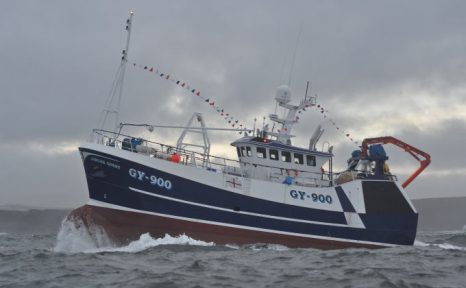
Brexit – Entering uncharted territory,turbulent waters, with challenges and perhaps also opportunities.
Two things can be said with certainty: 1. At this stage there are more questions than answers 2. In this new world, fishermen will need a strong, cohesive, national organisation to defend their interests during the upcoming transition It is not difficult to understand the strong anti-EU sentiments within the UK fishing industry. The European Commission has too often behaved with arrogance, and the EU Parliament with ignorance, to escape their share of the blame. To understand this, you need to go no further that the Commission’s proposed EU ban on small-scale drift nets – to solve an enforcement problem in Italy but which if adopted would have extinguished many sustainable, viable small-scale fisheries in the UK. This is but one example which just illustrates the roots of the frustration that has built over many years. Read the rest here 14:41
Fears Ramsgate’s fishing fleet could be no more in 2016
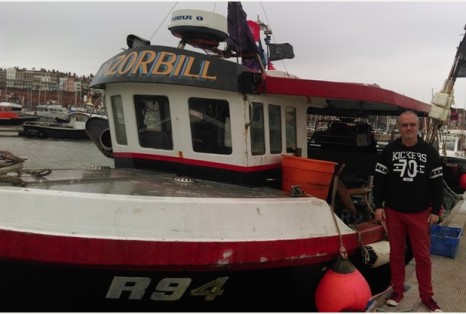 A Ramsgate fisherman fears the town’s next year if new fishing restrictions on Sea Bass come into force. The European Commission is considering a complete fishing ban on sea bass for commercial vessels and recreational anglers in the first half of 2016. Ramsgate fisherman Steve Barratt believes this ban would be the death knell of Ramsgate’s fishing fleet. Mr Barratt, has earned a living as a fisherman in Ramsgate for 30 years, said: “It’s getting to the point where you wake up in the morning and you think what’s the point anymore? I’m looking at the sea and there’s more bass there than there was 25 years ago.” Read the rest here 14:33
A Ramsgate fisherman fears the town’s next year if new fishing restrictions on Sea Bass come into force. The European Commission is considering a complete fishing ban on sea bass for commercial vessels and recreational anglers in the first half of 2016. Ramsgate fisherman Steve Barratt believes this ban would be the death knell of Ramsgate’s fishing fleet. Mr Barratt, has earned a living as a fisherman in Ramsgate for 30 years, said: “It’s getting to the point where you wake up in the morning and you think what’s the point anymore? I’m looking at the sea and there’s more bass there than there was 25 years ago.” Read the rest here 14:33
Fishermen Knowledge in Policy and Science: It’s just a net waste to ignore fishermen
 Grown-up policy-making requires significant input from those closest to the issue at hand. Sounds obvious, doesn’t it?. But you would be surprised at how often key stakeholders, to use the bureaucrats’ beloved terminology, are kept out of the loop, especially by the European Commission (and NOAA) . When it comes to my own industry, the politicians, officials and green lobbyists who have largely dictated fisheries policy over the past decade still view us (I’m borrowing this metaphor from our farming friends) as the fox in the hen house, that is, untrustworthy. Read the rest here 13:40
Grown-up policy-making requires significant input from those closest to the issue at hand. Sounds obvious, doesn’t it?. But you would be surprised at how often key stakeholders, to use the bureaucrats’ beloved terminology, are kept out of the loop, especially by the European Commission (and NOAA) . When it comes to my own industry, the politicians, officials and green lobbyists who have largely dictated fisheries policy over the past decade still view us (I’m borrowing this metaphor from our farming friends) as the fox in the hen house, that is, untrustworthy. Read the rest here 13:40
MSY Threat to Small-Scale Fisheries
 A rational, balanced and proportionate fisheries management approach would aim to continue this steady climb towards high-yield fisheries, without bankrupting the fleets.,, political courage – to face down those in the green lobby and their friends in the media, apparently oblivious to the human costs of the policies they have largely been responsible for. Read the rest here 08:43
A rational, balanced and proportionate fisheries management approach would aim to continue this steady climb towards high-yield fisheries, without bankrupting the fleets.,, political courage – to face down those in the green lobby and their friends in the media, apparently oblivious to the human costs of the policies they have largely been responsible for. Read the rest here 08:43
European Commission proposes fishing opportunities in the Atlantic and North Sea for 2015
 The European Commission has today proposed fishing opportunities for 2015 for the Atlantic and the North Sea. This is the annual proposal for the amount of fish which can be caught by EU fishermen from the main commercial fish stocks next year and it is for the first time based on the new Common Fisheries Policy (CFP). Read the rest here 11:31
The European Commission has today proposed fishing opportunities for 2015 for the Atlantic and the North Sea. This is the annual proposal for the amount of fish which can be caught by EU fishermen from the main commercial fish stocks next year and it is for the first time based on the new Common Fisheries Policy (CFP). Read the rest here 11:31
EU fisheries policy ‘a failure’, concludes UK review
 The EU’s Common Fisheries Policy failed to achieve its central objectives, the government’s review of the balance of power between the UK and the EU has concluded. Those submitting evidence to the review “overwhelmingly” felt it had not successfully maintained fish stocks, the government said. Read more here 17:40
The EU’s Common Fisheries Policy failed to achieve its central objectives, the government’s review of the balance of power between the UK and the EU has concluded. Those submitting evidence to the review “overwhelmingly” felt it had not successfully maintained fish stocks, the government said. Read more here 17:40






